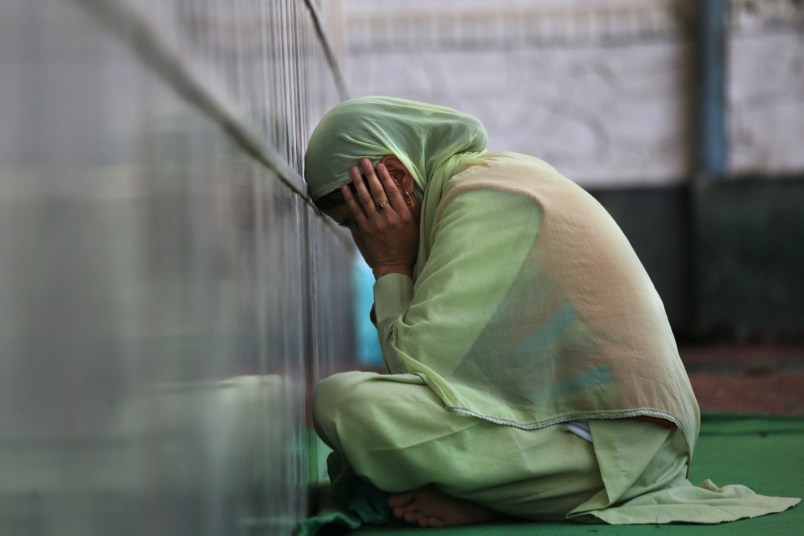We know through Edward Snowden that the government, the National Security Agency (NSA) in particular, has been spying on all of us. But now we have conclusive proof that the NSA also had some specific targets for their surveillance: Muslim Americans. No one is entirely shocked given the treatment of Muslim Americans and even those perceived to be Muslim Americans in the post 9-11 era. In the thirteen years since that awful day, the Muslim community has endured much: numerous hate crimes; graffiti and vandalism on mosques, homes and businesses; and very public animosity against an entire community that is being targeted merely on the basis of their faith.
It is entirely illogical to suggest that because some members of a specific ethnic or religious group perpetrated an attack, all people within that group are automatically suspicious. Yet sadly we have seen this argument before. That tired old argument during World War II resulted in over a hundred thousand Japanese Americans forcibly detained in what President Roosevelt himself called “concentration camps” for four years. They lost all their possessions, and were not afforded any legal protections or due process of law. When internee Fred Korematsu tried to challenge his internment as procedurally and legally prohibited under the Fifth Amendment of the
Constitution, the Supreme Court held that in times of “pressing public necessity,” some restrictions which curtail the civil rights of a single racial group can be permitted under the Constitution. In short, the Supreme Court ultimately decided that America’s national security interests outweighed the civil rights of one group. Earlier this year, Justice Scalia stated that while Korematsu was wrongly decided, in times of war “you are kidding yourself if you think the same thing will not happen again.”
Today’s political environment has given rise to a similar type of scapegoating. We live in an America where a leading Republican candidate for a House seat in Georgia can run on a platform that Muslims do not deserve First Amendment protection because their religion is not actually a religion. And sadly, there are many Americans who are perfectly willing to tolerate the targeting, scapegoating, and ultimately the violation of the Constitutional rights of their fellow Americans who are Muslim. But the greatness of the Constitution lies in the fact that it is intended to protect all Americans, regardless of their ethnicity, their faith, or the
popularity of their beliefs among the public.
As we learn more about the degree to which Muslim Americans have been spied upon, often in legally dubious circumstances, we are reminded of Korematsu and the Japanese American internment, which is, to this day, remembered as one of the darkest moments in our nation’s history. When the federal government chooses to prioritize national security over the Constitutional and civil rights of an entire community, America’s core values are compromised. As Sikh Americans, my colleagues and I protest this scapegoating and targeting of our Muslim friends, neighbors, and fellow Americans. Every American should be alarmed when national security interests triumph over civil liberties because when one community is targeted, all of our rights are targeted.
Jesse Kaur Bawa serves on the Board of Directors for the Sikh American Legal Defense and Education Fund (SALDEF). She is also an Assistant Professor of Lawyering Skills at Howard University School of Law.







“…has been spying on all of us.”
Seems the kool-aid has been drunk by this author.
I don’t know enough to make a reasoned comment but I’ll refer back to the Irish/English conflict because that does not have some of the racial and religious overtones that exist here. If Irish-American ‘social clubs’ and leaders were targeted for IRA affiliations (and funding) then morally I see no problem targeting Muslim leaders or organizations as long as there is some evidence of extremism, even if it’s hear-say or second hand.
Isn’t it something between hilarious and pathetic that the piece the author is referring to has not be reported on TPM?
I suppose the reason is that it didn’t include a Greenwald/Snowden selfie.